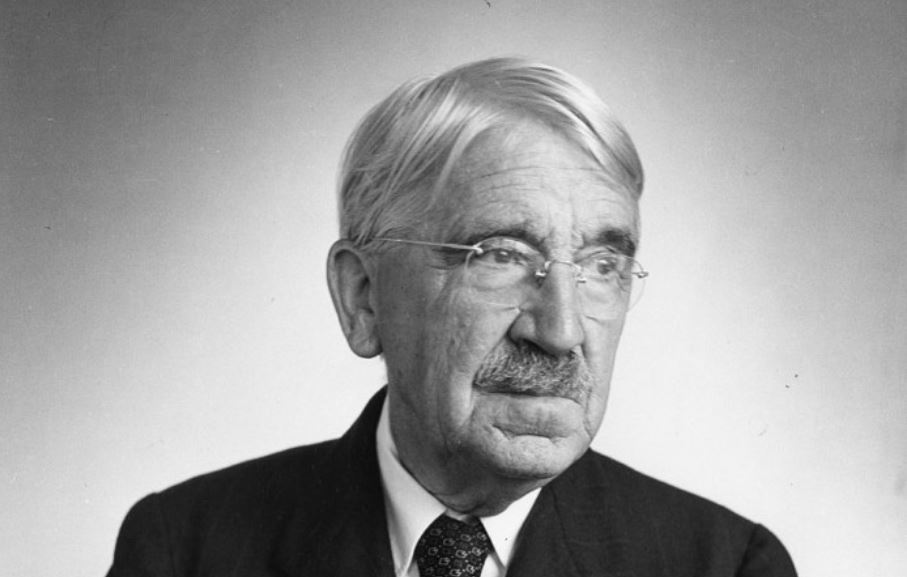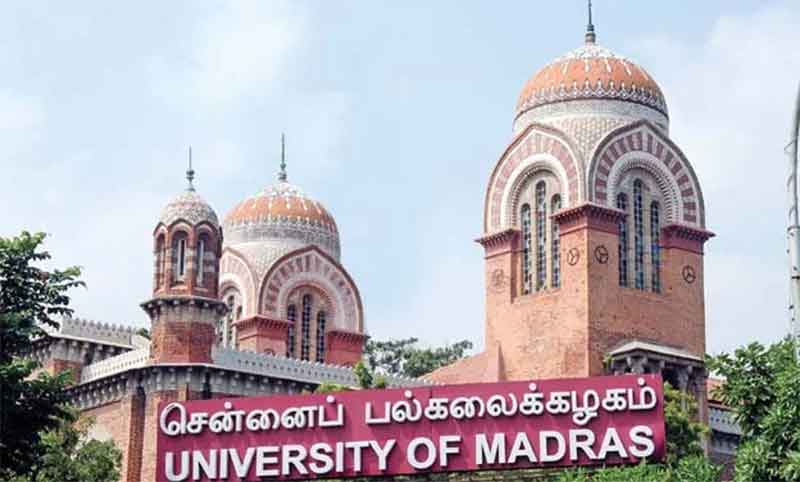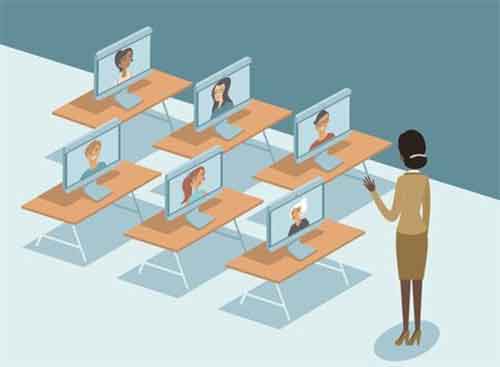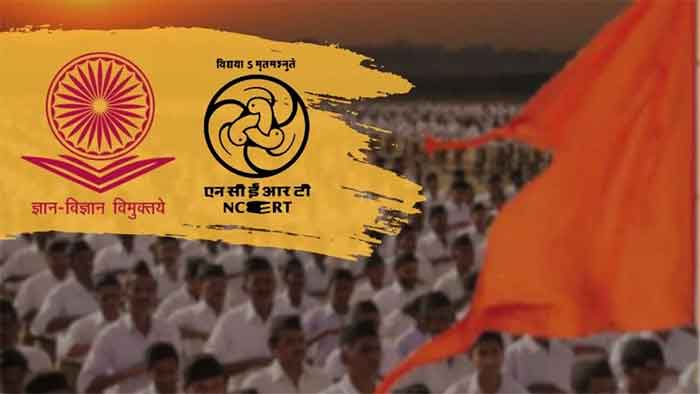
“Education is not preparation for life, education is life itself”- John Dewey
John Dewey was an American Philosopher and educator, founder of the philosophical movement known as Pragmatism, a pioneer of functional psychology and a leader of the progressive movement in education in United States. Dewey’s authority on education was evident in his theory about social learning; he believed that school should be representative of a social environment and that students learn best when in natural social settings (Flinders & Thornton, 2013). His ideas impacted education in another facet because he believed that students were all unique learners. He was a advocate of student interests driving teacher instruction (Dewey, 1938). With the current educational focus in the United States being on the implementation of the Common Core standards and passing standardized tests and state exams, finding evidence of John Dewey’s theories in classrooms today can be problematic (Theobald, 2009). Education in most classrooms today is what Dewey would have described as a traditional classroom setting. He believed that traditional classroom settings were not developmentally appropriate for young learners (Dewey, 1938). Although schools, classrooms, and programs that support Dewey’s theories are harder to find in this era of testing, there are some that still do exist. This paper will explore Responsive Classroom, Montessori Schools, Place-Based Education, and Philosophy for Children (P4C), all of which incorporate the theories of John Dewey into their curricular concepts.
In addition, Dewey was sensitive to the perspective, as ancient as Aristotle and Plato, that a theory of education is linked irrecusably to the sort of political system within which it is exercised. A philosophy of education must keep one eye focused on philosophical anthropology to understand the possibilities and limitations of human beings. The other must focus on the political system which sets the general goals of education. ‘‘The conception of education as a social process and function has no definite meaning until we define the kind of society we have in mind” (MW 9:103). My own analysis will divide along these two paths of philosophical anthropology and political philosophy. The first path will follow Dewey’s rejection of his great bete noire, dualism, and its accompanying asomatic attitude. By moving beyond dualism, Dewey introduces a reevaluation of the body, and a redefinition of ‘mind.’ Several important Deweyan themes emerge in this connection.
- Dewey makes an important distinction between a narrowly ‘vocational’ education, and one that is built around what he calls ‘occupations.’ “Occupations” are made central, while narrow vocationalism is rejected outright.
- Education is not preparation. Education, for Dewey, is important only so far as it is treated as an end in itself. Education treated as preparation for external and future ends represents one great failing of traditional pedagogical methods.
The primary ineluctable facts of the birth and death of each one of the constituent members in a social group determine the necessity of education. On one hand, there is the contrast between the immaturity of the new-born members of the group—its future sole representatives—and the maturity of the adult members who possess the knowledge and customs of the group. On the other hand, there is the necessity that these immature members be not merely physically preserved in adequate numbers, but that they are initiated into the interests, purposes, information, skill, and practices of the mature members: otherwise the group will cease its characteristic life. Even in a savage tribe, the achievements of adults are far beyond what the immature members would be capable of if left to themselves. With the growth of civilization, the gap between the original capacities of the immature and the standards and customs of the elders increases. Mere physical growing up, mere mastery of the bare necessities of subsistence will not suffice to reproduce the life of the group. Deliberate effort and the taking of thoughtful pains are required. Beings who are born not only unaware of, but quite indifferent to, the aims and habits of the social group have to be rendered cognizant of them and actively interested. Education, and education alone, spans the gap. Society exists through a process of transmission quite as much as biological life. This transmission occurs by means of communication of habits of doing, thinking and feeling from the older to the younger. Without this communication of ideals, hopes, expectations, standards, opinions, from those members of society who are passing out of the group life to those who are coming into it, social life could not survive. If the members who compose a society lived on continuously, they might educate the new-born members, but it would be a task directed by personal interest rather than social need. Now it is a work of necessity. (Krishna Kumar, 2004)
Reconstruction of Moral Philosophy
In 20thcentury, modern moral theory came under attack. Many consider G. E. M. Anscombe’s 1958 essay ‘‘Modern Moral Philosophy’’ as marking the beginning of this critique. Before then, however, Dewey had already embarked on a criticism of the philosophical assumptions that had characterized ethical theory since Kant and Mill. The linguistic turn at the beginning of the twentieth century was hardly a radical turn from these assumptions. Dewey’s reconstructive proposal for ethical theory is not, however, that we must stop doing moral philosophy ‘‘until we have an adequate philosophy of psychology’’ or that we need to return exclusively to the concerns that today define virtue ethics. Dewey proposes instead that philosophers must make an honest effort to take, as a proper starting point, moral experience as it is experienced. Hence, my task is first to make explicit what this starting point amounts to, and then to show its consequences and implications for ethics. Dewey’s view of moral life and his normative ethics are the upshot of this new starting point. Dewey proposes that in moral life, duty, virtue, and the good have their irreducible and proper place. We need not choose between deontology, virtue ethics, and consequentialism. Dewey includes and reconciles ideas about moral life that, from the point of view of these other theories, may seem incompatible. Dewey’s insights are attractive in light of today’s growing awareness of the reductionistic and myopic character of modern ethics. However, the challenge today is to present an inclusive and pluralistic account of moral life that is both unified and coherent. Dewey’s ethics is not the result of ad hoc moves, nor is it a matter of adding together the insights of others. Instead, it is an ethics that is the result of a reconstruction that abandons the assumptions that have forced us to take sides, and it is one that reveals a moral life that is rich and complex. Dewey once explained that the radical empiricism he shared with William James yielded two kinds of contributions for philosophy. One contribution is to provide answers to old problems, while the other advances philosophy by undercutting the genuineness of certain problems. Dewey felt that there are questions insufficiently grounded in everyday moral experience that continue to be divisive among philosophers. There are also other questions, he thought, whose legitimacy is based on the assumption that there are no alternatives to extreme options. Dewey undercuts these kinds of questions in order to clear the way for his own answers to legitimate traditional questions, and he proposes and defends new tasks for ethical theory.
Dewey reconstructs traditional conceptions of the moral self, of deliberation and of moral problems. He points to dimensions of moral life that tend to be overlooked and undervalued in much modern ethical thought, but that are increasingly of interest in contemporary ethical theory. Moreover, a growing body of research in social psychology and cognitive science has begun to over an alternate picture of moral judgment and of moral deliberation that is very much like Dewey’s. For example, Mark Johnson claims that: ‘‘The issue of the role of feelings in thought is one area in which cooperative cognitive science is perhaps only recently catching up with the early arguments of James and Dewey.’’ A comprehensive reconstruction of Dewey’s ethics is needed so that it can be used to revitalize ethical theory.
Three Facets of Dewey’s Ethics
Providing a unifying account of Dewey’s moral philosophy requires that I show how his contributions to ethics are interrelated. His contributions result from a larger inquiry grounded on the same core commitments, and are not just a collection of disparate philosophical insights about morality. Dewey’s ethics cannot be understood in isolation from the larger fabric of the whole of his philosophy, and his ethics cannot be judged or appreciated from the standpoint of assumptions that are foreign to his wider philosophy. The holistic character of his philosophy should not be considered a weakness; on the contrary, it is something that Dewey shares with great ethical thinkers like Kant and Aristotle. Moreover, Dewey’s ethics is the key to understanding his wider philosophy. He had a lifelong preoccupation with democracy, which for him was a moral ideal. Dewey also wrote that his choice of intelligence as the preferred method of action implies, like every choice, a definitive moral outlook. The scope of this choice is so inclusive that the implication outlines, when followed out, an entire ethical and social philosophy. (LW 8:101) Dewey, however, did not consolidate his ideas about moral philosophy in any single work. The few books in which Dewey focused explicitly on ethics were textbooks and syllabi, written primarily for classroom work and not intended to be systematic theoretical formulations. It would have been fitting for him to write one more revision of his 1932 edition of Ethics (with James Hayden Tufts), not as a textbook, but as a more comprehensive and definitive rendition of his moral thought in light of the philosophical commitments that distinguished his philosophical outlook. The present book is the one that Dewey should have written on his moral philosophy. The works that best represent Dewey’s mature treatment of ethics are: Democracy and Education (1916); Reconstruction in Philosophy (1920); Human Nature and Conduct (1922); ‘‘Three Independent Factors in Morals’’ (1930); and Ethics (1932). Unlike many contemporary approaches to ethics, Dewey’s moral thought does not rest on a set of postulates and arguments that constitute a formal ethical system. Instead, he criticizes the tradition while simultaneously o√ering the reader a hypothetical account of moral experience and proposing commitments that he sometimes left unstated. (Gregory Fernando Papas, 2008)
Education Is an End in Itself
An education centered on occupations and carried on under such conditions would be compromised if each stage of the process were not understood as an end in itself. Each step in the process of formation has only one end, that of extracting the maximum from the students’ experiences. “In our search for aims in education, we are not concerned, therefore, with finding an end outside of the educative process to which education is subordinate” (MW 9:107). As traditionally carried out, education violates this precept. It rather ‘exhibits a subordination of the living present to a remote and precarious future.’ (MW 14:185). For Dewey, education is not this sort of preparation. It is tied to growth, which in turn signifies “a constant reorganizing or reconstructing of experience.’ The end of education is not to be located outside the process of educating. “It has all the time an immediate end, and so far as activity is educative, it reaches that end—the direct transformation of the quality of experience” (MW 9:82). Education is not narrowly instrumental. Dewey rejects the understanding of education that would see it as a sort of ladder to be kicked aside once a new plateau has been reached. Such a view would understand education as a mere instrument or means to attain pre-ordained goals. For Dewey, education is always an activity of the present. It is the practice of extracting meaning from actually existing conditions. Earlier educative experiences cannot be compared to some instrument, once used and now discarded. They are, rather, important ingredients in growth that have been absorbed as we continue life’s journey. Since this is the case, each phase of that journey is to be esteemed for what it is. ‘Infancy, youth, adult life,’ according to Dewey, ‘all stand on the same educative level.’ This is so for two reasons. First, ‘what is really learned at any and every stage of experience constitutes the value of that experience.’ Second, ‘it is the chief business of life at every point to make living thus contribute to an enrichment of its own perceptible meaning’ (MW 9:82). Education as the ‘constant reorganizing or reconstructing of experience’ is a process that is coextensive with human life itself. If education were preparation, it would have a fixed terminus at which the educative process would be finished. Such an instrumentalist attitude is reinforced by the divorce of schooling from life. But if schooling and life remain married, as Dewey suggests, then the aim of drawing from the present what is most fulfilling is a process of formation that should not stop at any stage of growth.
Education and Democracy
Whereas dualism was the great Deweyan foil, allowing him to articulate the path to be avoided, democracy provided the ideal which allowed him to identify the trail to be charted. As we saw in the last chapters, “democracy” for Dewey identifies a way of life, an ideal of social association that cannot be identified with any particular historical embodiment. As such, democracy is an ongoing experiment, open always to the possibility of amelioration.
In a Deweyan context, we should not speak of democratic societies as if they were fully in place. Rather it would be better to speak of societies attempting to become more and more democratic, struggling against the ever-present forces which tempt them away from the further realization of democratic ideals. Summarizing themes from the previous two chapters, we can say that the level of democratization is linked to the presence of three characteristics:
- A democratic society is one which encourages “individuality” as opposed to “individualism.” Working within a biological context, Dewey accepts a “cellular” conception of societies. These are composed on the basis, not of isolated individuals, but of individuals in relation with others. The ultimate unit is not the Daltonian simple atom. The ultimate unit is an already diversified, complex cell. This cellular conception of society leads Dewey to make a distinction between individualism, the ideal of autonomy in a Lockean world, and individuality which he understands as identifying the proper manner in which each person can contribute to the community. It is this latter which needs to be cultivated.
- Democratic societies are committed to several generative ideals, the most important of which are freedom and equality. Freedom, for Dewey, is not simply the absence of constraints. He understands it concretely as the capacity, the ability to carry out projects in practice. Equality, for him, is not identity. Equality means the recognition of the uniqueness, the irreplaceability of each human being. Neither freedom nor equality in its fullest manifestation is an original given. Both are emergent, growing realities. The capacities that define the extent of one’s concrete freedom are but possibilities outside of association with others. Humans expand their abilities, and thus their freedom, by learning from, and working with others. The irreplaceability that is the mark of democratic equality is minimal without that development of abilities which can only be effected through social life.
- The third element was not sufficiently emphasized in the previous chapters. A democratic way of life is being fulfilled where the different groupings that make up the society have porous boundaries. Societies become more and more democratic when there are ever more shared interests between the differing social strata. Societies marked by rigid boundaries between social strata, even if they practice universal suffrage, are minimally democratic. Such societies remain too closely aligned to the aristocratic model. Democratic societies are judged by the manner in which there is ample interaction and movement between social strata. Where the interaction is fluid and the movement is free, there the ideal of democracy is closest to realization. Where there are polarization, fixed distinctions, and hardly any shared interests, there the ideal of democracy is farthest from realization. A more vibrant democratic life would channel energy in a different direction. “It signifies a society in which every person shall be occupied in something which makes the lives of others better worth living, and which accordingly makes the ties which bind persons together more perceptible—which breaks down the barriers of distance between them” (MW 9:326).
Each of these three themes translates into propositions for educational reform:
- A system of education in a democratic society must not only be open to all its citizens, but must make a concerted effort to succeed in well educating them. In practice, this means paying attention to the differing situations of children entering the educational system. The supposition of absolute equality as an original given must be rejected. Otherwise, the result is a system which merely reinforces the benefits of privileged birth, together with the drawbacks of a less favorable one.
- The educational system must help increase freedom as power to select and accomplish adequate life projects. It must also foster the growth of individuality. The school can do this by structuring itself as a community which emphasizes shared goals and group projects.
- Democratic education must widen the scope of student interests. Understanding history, the sciences, painting, music and literature are the prerequisites to breaking down barriers between classes and establishing a context for wider shared interests. Without education in these areas, the class distinctions which separate those who work with their hands and those who do not is magnified, not attenuated.
- Education in a democratic society must also inculcate the habits of taking account of others prior to making decisions. The democratic way of life is not dominated by the attitudes summarized in the slogans ‘Leave me alone,’ ‘Do your own thing,’ or ‘It’s up to the individual.’ These are precisely what democratic life does not prize. Democratic practice is marked by taking others into account, by considerations of consequences and how they impact beyond their immediately perceived benefit for the agent.
Dewey’s Significance
Dewey’s distance from us means that we cannot agree with all that he says. Nonetheless, he can speak to us anew. Dialogue with him can bear fruit as we face the contemporary challenge of providing our own “tale of meanings.” Any such tale will include the elements addressed by Dewey: a concrete grasp of the life-world, an understanding of human intelligence, the articulation of social ideals, the place of education, integration of the arts, and the proper role for devotion and commitment. In addition, Dewey is worth listening to because the twentieth century is ending on several notes that refocus our attention on themes he made prominent. More than ever we recognize the reach of interconnection, interdependence, and interaction. Decisions made about oil supplies in Nigeria, construction of a blue jean factory in China, the rate of inflation in the United States, these all have repercussions far beyond national boundaries. Ecologists keep reminding us that our interactions with the natural world are as important as interactions between ourselves. The life-world is not a scene of isolated agents. It is, as Dewey emphasized, one dominated by interconnections and interdependencies. The last decades of the twentieth century have also witnessed an upsurge in democratic aspirations. Whether it is the fall of communism in Europe or the successes of popularly elected governments in Latin America, indications point to a deep desire among people to live in democratic societies. The crucial philosophical questions, “what is democracy,” “what are its central ideals,” and “how are these to be woven together in an effective synthesis,” thus take on a new urgency. As we ask these questions anew, Dewey can serve as one of the foremost twentieth-century sources of inspiration. Throughout the United States and in other countries around the world, John Dewey’s theories are still quite present. These schools and classrooms are still placing an emphasis on the importance and relevance of building community, building strong relationships, developing higher level thinking skills for real-life application, and following student interests when planning for instruction. Students who are participating in an academic programs, such as the ones presented here, will likely be critical thinkers and significant, positive contributors to their local communities and to society as they mature into adult citizens.
References
Alexander, Thomas (1987a). John Dewey’s Theory of Art, Experience, and Nature . Albany: SUNY Press.
———. (1987b). “Art As Care.” Paper presented at the Taos Aesthetics Institute, May 26.
Allen, Gay Wilson (1981). Waldo Emerson: A Biography. New York: Viking Press.
Anderson, Douglas (1996). “Theology as Healing: A Meditation on A Common Faith.” Paper presented at the annual meeting of the Society for the Advancement of American Philosophy, Toronto, March 8, 1996.
Aristotle (1984). The Complete Works. Ed. Jonathan Barnes. Princeton: Princeton University Press.
Ayer, Alfred J. (1952). Language, Truth and Logic. New York: Dover Publications.
Bacon, Francis ([1620] 1994). Novum Organum. Trans. and eds. Peter Urbach and John Gibson. Chicago: Open Court.
Barber, Elizabeth Wayland (1994). Women’s Work. New York: W. W. Norton.
Baumgarten, Alexander Gottlieb ([1735] 1954). Reflections on Poetry . Trans. Karl Aschenbrenner and William Holther. Berkeley: University of California Press.
Bell, Clive (1949). Art . 2nd ed. London: Chatto & Windus.
Biography
I Pravat Ranjan Sethi completed my studies from Centre for Historical Studies, JNU, New Delhi, at present teaching at Amity University. My area of interest is Modern History especially Nationalism, Political History, Critical Theory and Gender Studies.













































